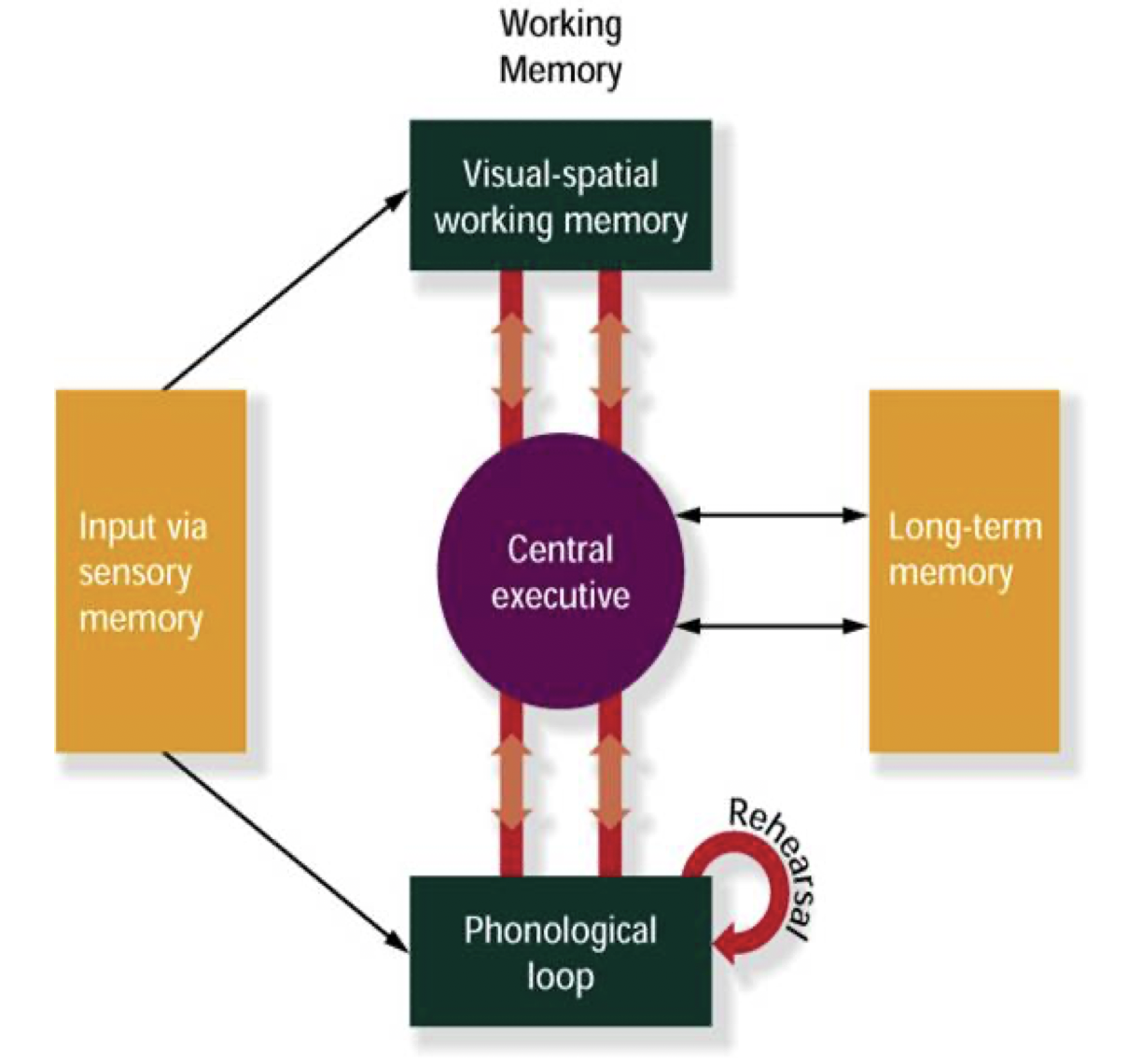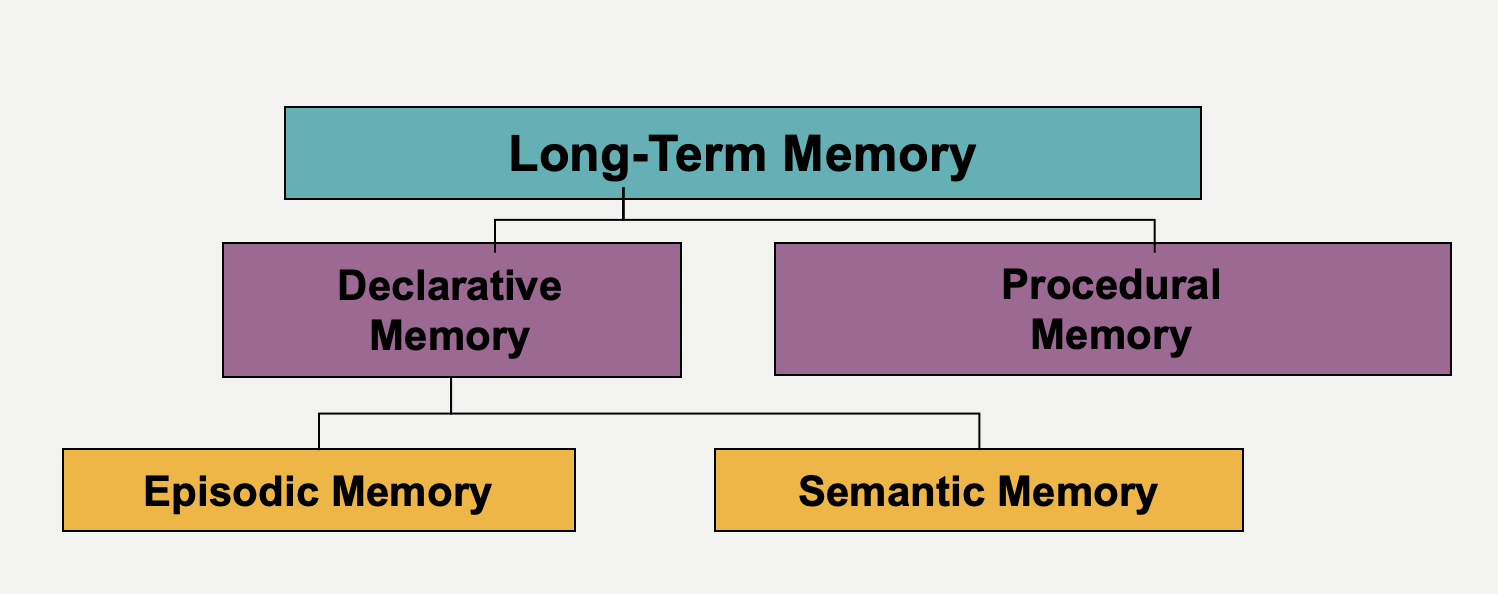9. Information Processing Approach
Learning Goals Overview
Key areas of focus:
Information Processing Approach (Intro)
Memory
Expertise
Attention
Metacognition
Historical Context and Theoretical Background
Behaviorism: Dominant until 1950-60s; focused on observable behavior but failed to explain children's learning fully.
Cognitive psychology: Emerged, emphasizing mental processes like memory and thinking in learning.
Information Processing Approach
A cognitive approach where individuals manipulate, monitor, and strategize about information.
Central cognitive processes:
Attention
Memory
Thinking
Developmental Changes: Information-processing abilities, capacity, and speed increase with age, influenced by biology (brain structure, neural aspects like synaptic pruning and myelination) and experience.
Cognitive Development and Brain Changes
Biological brain changes enhance cognitive resources, especially in frontal lobes.
Neuronal level changes: blooming and pruning strengthen and reduce neural connections.
Myelination: Axon insulation with a myelin sheath, increasing electrical impulse speed, continues through adolescence and impacts processing speed.
Mechanisms of Developmental Change (Robert Siegler)
Encoding: Recording information, improving skill in selecting relevant data.
Automaticity: Processing information with minimal effort, allowing for more data handling.
Strategy Construction: Developing new methods for information processing.
Self-modification: Adapting responses based on past experiences and dynamic memory modification.
Metacognition: Understanding one’s own cognitive processes; "knowing about knowing."
Attention
Definition
Attention: Focusing mental processes on specific aspects while ignoring others.
Selective Attention: Concentrating on relevant experiences.
Divided Attention: Focusing on multiple activities simultaneously.
Sustained Attention (Vigilance): Maintaining attention over time.
Executive Attention: Involves planning, goal allocation, error detection, and progress monitoring.
Importance of Attention
Essential for learning; new information requires attention to reach working memory and be processed into long-term memory. It filters information to facilitate concentration.
Developmental Changes in Attention
Increases in:
Selective Attention
Attention Span (duration of focus)
Cognitive Control of Attention (prioritizing stimuli)
Educator Strategies to Enhance Attention
Encourage minimizing distractions.
Make learning engaging and relevant.
Use cues and gestures for important material.
Focus on active learning methods, considering individual differences.
Leverage media and technology for engagement.
Misunderstanding Attention Problems
Attention Problems vs. ADHD: Not all attention issues indicate ADHD. Other factors include anxiety, OCD, stress, trauma, and learning disorders.
Professional assessment is crucial for accurate diagnosis, comparing with age peers.
Memory
Overview
Memory: Retention of information over time, involving encoding, storage, and retrieval.

Encoding, Storing, and Retrieving
Encoding: Transforming information into a storable format.
Storing: Maintaining encoded information.
Retrieving: Accessing previously encoded and stored information.
Encoding Strategies
Attention: Focus is crucial.
Rehearsal: Repetition over time.
Constructing Images: Visualizing information.
Elaboration: Expanding on information.
Deep Processing: Complex understanding for better retention.
Organization: Structuring information; chunking groups data.
Types of Memory Storage
Sensory Memory: Brief retention of raw sensory information.
Short-term Memory: Limited capacity, short duration (avg. 7 items).
Long-term Memory: Large capacity for indefinite storage.

Models of Memory
Atkinson-Shiffrin Model: Three stages: Sensory, Short-term, Long-term.
Baddeley's Model of Working Memory: Phonological loop, visuospatial working memory, central executive.
Classification of Long-term Memory
Procedural Memory: Non-conscious skills and operations.
Declarative Memory: Consciously recalled facts and events.
Episodic Memory: Personal experiences with context (time, place).
Semantic Memory: General knowledge (concepts, vocabulary, facts).
Enhancing Memory
Promote understanding of information.
Assist in organizing knowledge.
Teach mnemonic techniques:
Acronyms
Rhymes
Method of loci
Challenges in Memory
Forgetting Types
Cue-Dependent Forgetting: Lack of retrieval cues.
Interference Theory: New or old information impedes recall.
Decay Theory: Memories degrade over time without review.
Classification of Information Recall
Serial Position Effect: Better recall for items at the beginning (Primacy) or end (Recency) of a list.
Encoding Specificity Principle: Retrieval cues formed during learning aid recall.
Expertise in Learning
Expert Characteristics
Detect meaningful patterns.
Possess deep knowledge organized around essential ideas.
Retrieve information with minimal effort.
Adapt approaches to new situations effectively.
Learning Strategies for Expertise Development
Spreading out learning and reviewing.
Self-questioning.
Effective note-taking.
Implementing systems like PQ4R (Preview, Question, Read, Reflect, Recite, Review).
Metacognition
Definition
Metacognition: Understanding and controlling one’s own thought processes (planning, monitoring, evaluating learning strategies). Crucial for student autonomy and problem-solving.
Improvement of Metacognitive Skills
Develops with cognitive maturity and knowledge of memory functions.
Effective information processing models lead to better strategic learning.
Strategies to Develop Metacognition
Mind mapping to organize thoughts.
Reflective practices to analyze thought processes post-learning.
Assess and adapt learning approaches based on experiences.
Conclusion
Integrating cognitive and metacognitive strategies supports better learning outcomes and retention.
Continuous assessment and adaptation of learning strategies foster effective learning.